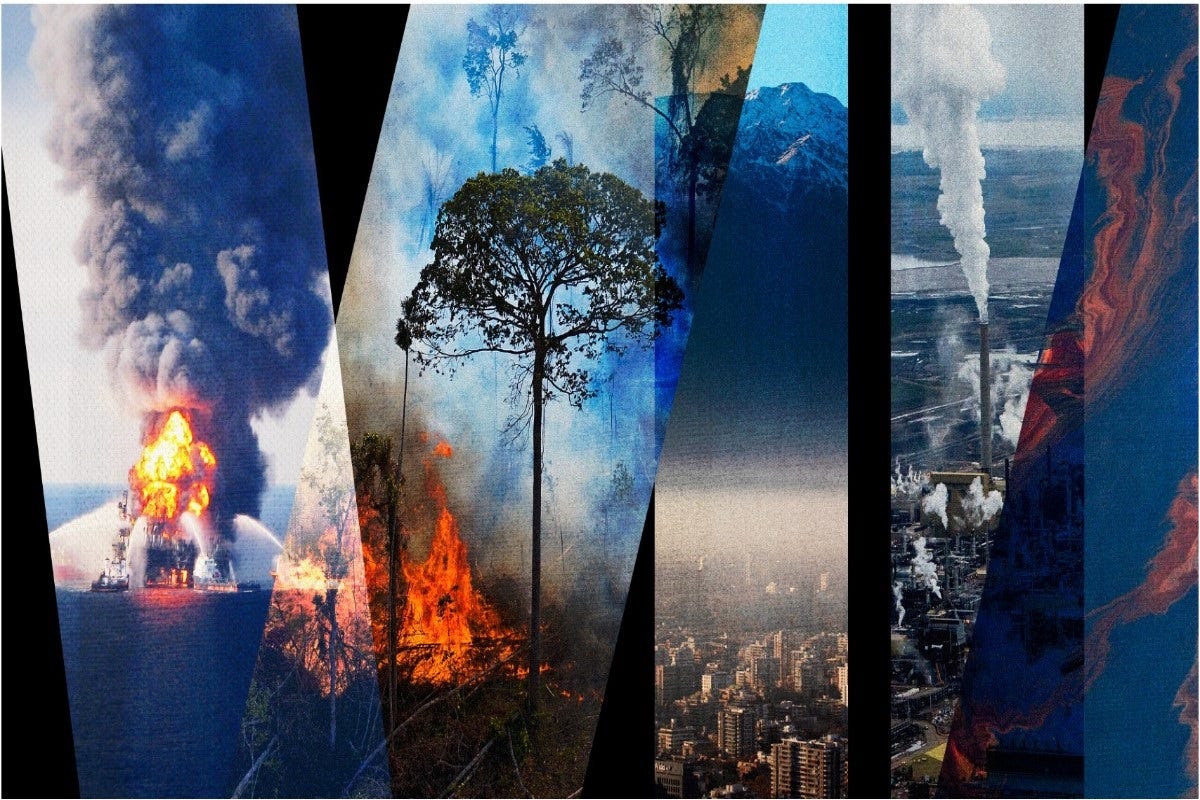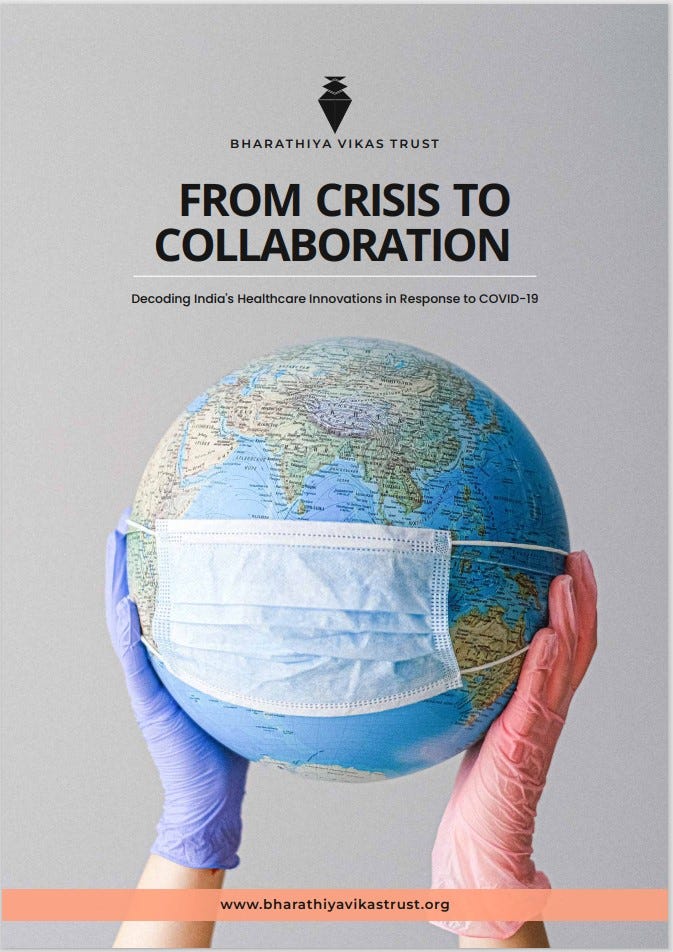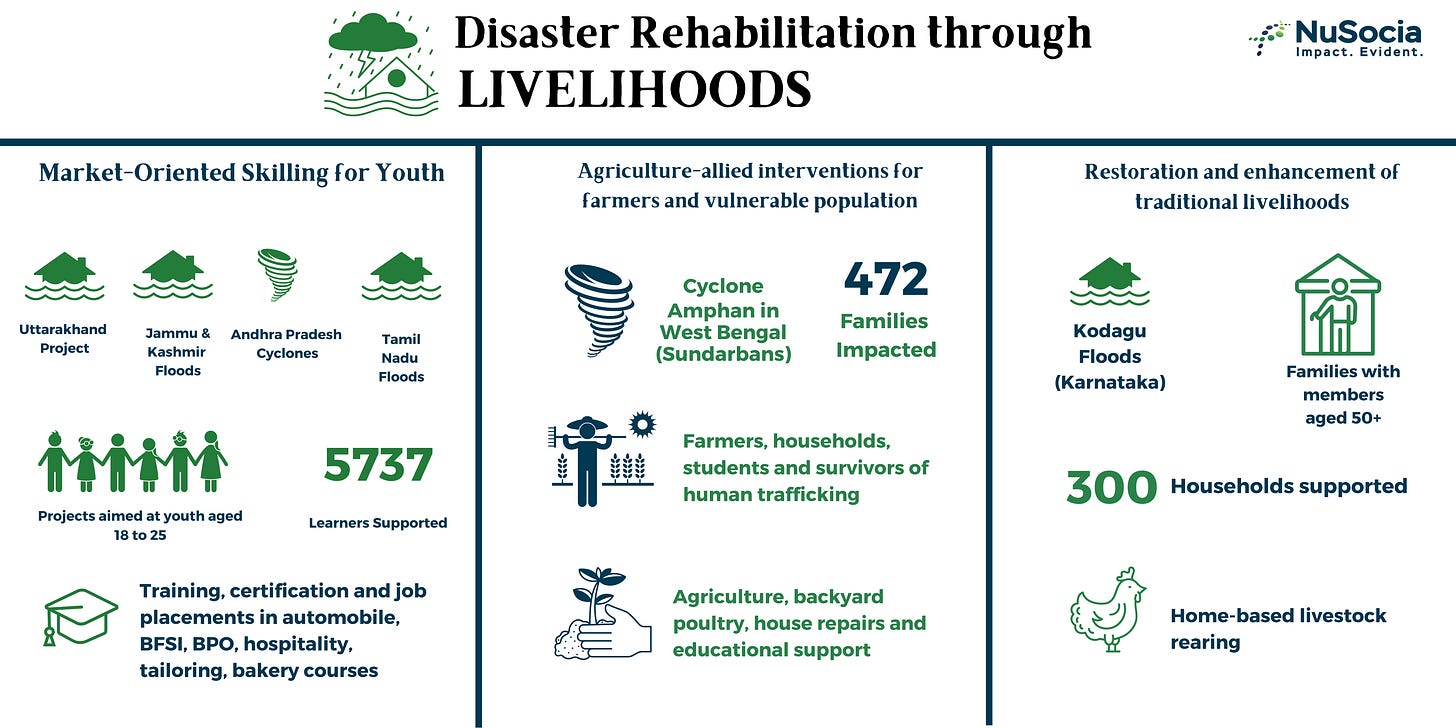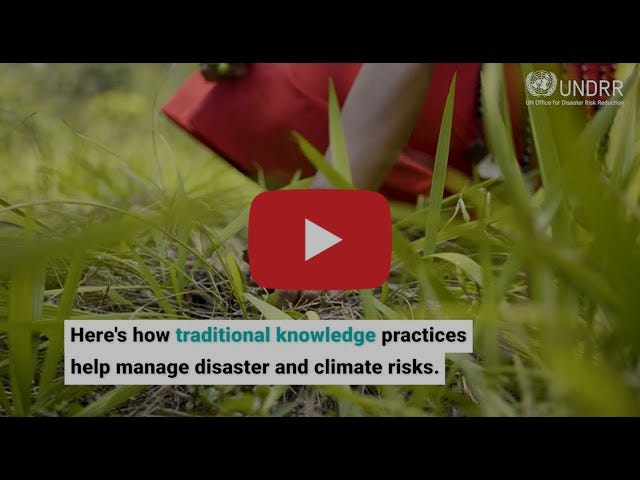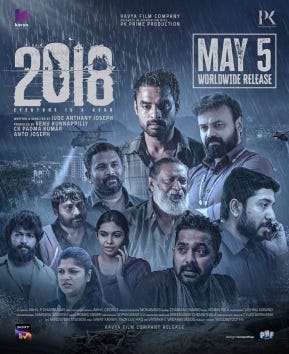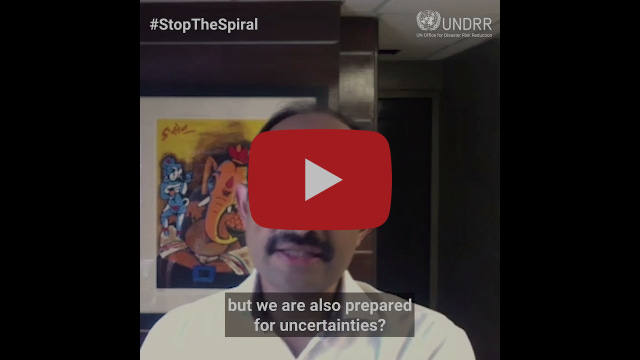Building Resilient Communities | The Impact Post
Issue #33 | Wed, Aug 9, 2023
Dear Patron,
Over 2 million deaths and $4.3 trillion in economic losses - that’s the impact of a half-century of extreme weather events turbo-charged by man-made global warming, according to the World Meteorological Organization. In India, climate disasters have claimed 1,224 lives between April to July this year. The need to prepare for a world of unexpected shocks has become clearer than ever. Epidemics, floods, storms, droughts and wildfires are all expected to become more frequent and severe, affecting hundreds of millions of people every year.
The head of the United Nations Office for Disaster Risk Reduction (UNDRR), Mami Mizutori, warns that the failure to reduce disaster losses as set out in the 2015 Sendai Framework is putting at risk the ability of developing countries to eradicate poverty and to achieve other important SDGs.
There is no time to wait. Overall development, poverty alleviation, and knowledge-sharing of how to increase resilience to natural disasters will be key to reducing the toll of disasters in the decades to come.
Failing to Prepare is Preparing to Fail
Epidemics and pandemics are some of the leading threats to global health security. In this century alone, the world has seen deadly regional outbreaks of ebola, Middle East respiratory syndrome (MERS) and yellow fever, among many others. And virtually every person on our planet has been affected by the direct or secondary impacts of the COVID-19 pandemic.
Unlike most other natural disasters, pandemics do not remain geographically contained, and damages can be mitigated significantly through prompt intervention. As a result, there are strong ethical and global health imperatives for building capacity to detect and respond to pandemic threats, particularly in countries with weak preparedness and high spark and spread risk.
Disaster preparedness isn’t just the right thing to do, it’s the smart thing to do. We must step up action and invest in preparedness now, rather than waiting for the next disaster to hit.
From Crisis To Collaboration
NuSocia worked with the Bharathiya Vikas Trust to document the healthcare landscape in India and the country's resilient response to the COVID-19 pandemic. The report showcases the role of innovative initiatives and community-driven approaches in addressing healthcare challenges. It highlights the pioneering efforts of the Crypto Relief Fund and exemplary initiatives.
The report calls for future actions in innovation, research and sustainable partnerships following a grounds-up approach towards building a resilient ecosystem in the face of a pandemic.
Right Place at the Right Time
During the first days after major sudden-onset disasters, the affected country and a vast number of international organizations collect and analyze information in order to plan their response. This activity is typically carried out simultaneously with varying speed, relevance and accuracy. Decisions are often based on patchy information, inaccurate sources or assumptions. This often results in duplication, gaps, overlap or even inappropriate response, occasionally associated with high costs.
In our latest episode of NuSocialogy, Satnam Singh, General Manager at Smile Foundation talks about the key aspects of rapid response in disaster-struck areas.
Building Back Better
Rehabilitation is the longest and most expensive phase of disaster management. It involves restoring communities, economies, and livelihoods along with interventions that address the physical and psychological well-being of disaster survivors. Such rehabilitation programs and interventions look different across cultures, geographies, communities, and age groups.
In the face of serious disruptions to local livelihoods and asset bases due to disasters, it is paramount to reconstruct, transform and diversify livelihoods. Vulnerability reduction forms a central component of such livelihood recovery interventions.
NuSocia has evaluated and analyzed various CSR driven livelihood recovery programs across the country. Our research reveals that well-informed and early interventions, capacity and skill building, and community engagement are critical variables in building disaster resilient communities.
#NuSociaPicks
How traditional knowledge practices help manage disaster and climate risks - an insight by the United Nations Office for Disaster Risk Reduction (UNDRR)
Movie Recommendation: '2018: Everyone is a Hero' is a 2023 Indian Malayalam-language survival thriller film about the severe 2018 Kerala floods that devastated Kerala.
Disaster relief and response can not be done only by specialized agencies. It is often the community around whose participation becomes crucial. Therefore, engaging the community at all stages is important. The movie showcases how common people emerged as life saving heroes during the floods.
How are our choices increasing disaster risks worldwide? An interview with Mr. Kamal Kishore, Global Assessment Report (GAR) Advisory Board Member
I hope you enjoyed reading this newsletter. Have questions or feedback? Reach out to me by replying to this email.
Regards,
Manju Menon
Co-Founder & CEO, NuSocia



